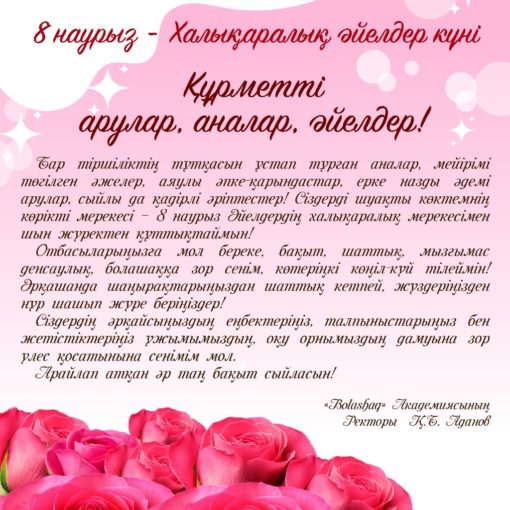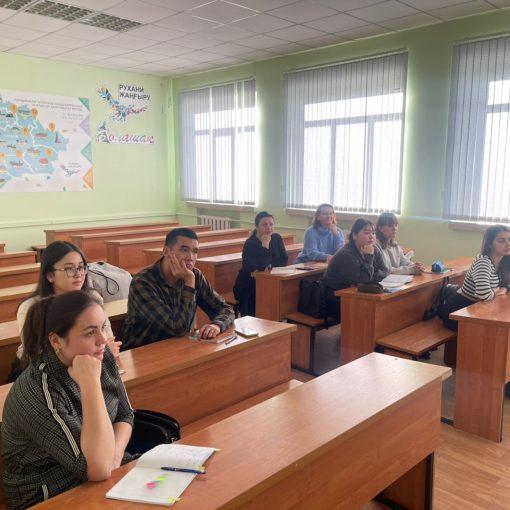What is coronavirus?
Coronaviruses are a family of viruses that primarily affect animals, but in some cases can be transmitted to humans. Usually, diseases caused by coronaviruses take place in a mild form, without causing serious symptoms. However, there are also severe forms, such as Middle Eastern respiratory syndrome (Mers) and severe acute respiratory syndrome (Sars).
What is the route of coronavirus transmission?
Droplets that are formed when an infected person coughs or sneezes.
It can also spread when someone touches any contaminated surface, such as a door handle. People become infected when they touch the contaminated hands on the mouth, nose or eyes.
Initially, the outbreak came from animals, presumably from a seafood market in Wuhan, China, where not only fish were actively traded, but also animals such as marmots, snakes and bats.
Who is the source of coronavirus infection?
A sick person or animals.
Where did this infection come from?
According to Chinese scientists, the natural reservoir of COVID-19 is wild animals (bats). The main place from which human infection occurred was the South China Seafood Wholesale Market, where wild animals, including bats and reptiles, were purchased.
What were the main symptoms of coronavirus infection?
high body temperature
pain in the neck
weakness
cough
shortness of breath
muscle pains
nausea
vomit
diarrhoea
Is the virus stable in the external environment?
Coronavirus is unstable in the environment, dies at 57 degrees C and above, unstable to disinfectants and alcohol-containing substances.
What is the incubation period of the infection?
The incubation period (from the time of infection until the signs of disease appear) is 2 to 14 days, more often than 2 to 7 days.
Question: Is there a treatment for this infection?
There is no specific treatment for this infection at the moment. Pathogenetic and symptomatic treatment is being carried out.
How do I protect myself from infection with coronavirus?
The most important thing is to keep hands and surfaces clean. Keep your hands clean, wash them often with soap and water or use a disinfectant.
Also, try not to touch your mouth, nose or eyes with unwashed hands (usually unconsciously, we do this on average 15 times per hour).
Carry hand sanitizer with you so that you can clean your hands in any environment.
Always wash your hands before eating.
Be especially careful when you are in crowded places, airports and other public transport systems. Reduce contact with surfaces and objects in these places as much as possible and do not touch your face.
Carry disposable wipes and always cover your nose and mouth when you cough or sneeze, be sure to dispose of them after use.
Do not eat food (nuts, chips, cookies and other snacks) from shared packages or dishes if others have immersed their fingers in them.
Avoid handshakes and cheek kisses until the epidemiological situation stabilizes.
At work, clean surfaces and devices you touch regularly (computer keyboard, general office equipment panels, smartphone screen, remotes, door handles and handrails).
How do I wear the medical mask correctly?
Gently cover your nose and mouth with the mask and secure it to reduce the gap between your face and the mask.
2. Do not touch the mask during use. After touching the mask used, for example, to remove it, wash your hands.
3. After the mask becomes wet or dirty, wear a new clean and dry mask.
4. 4. Do not reuse disposable masks. They should be discarded after each use and disposed of immediately after removal.
Can the new coronavirus be cured?
Yes, of course. However, there is no specific antiviral drug for the new coronavirus – just as there is no specific treatment for most other respiratory viruses that cause colds.
Viral pneumonia, the main and most dangerous complication of coronavirus infection, cannot be treated with antibiotics. In case of pneumonia, the treatment is aimed at maintaining lung function.
Who’s at risk?
People of all ages are at risk of becoming infected with the virus. A statement from the Wuhan Health Commission (PRC) said the 60 most recent cases are between 15 and 88 years old.
However, as with most viral respiratory diseases, children and people over 65 years of age, people with a weakened immune system are at risk of severe illness.
Is there a vaccine for the new coronavirus?
There is no such vaccine at present, but scientific organizations in China and several countries have already started developing it.
Where can I go if there are symptoms similar to coronavirus infection?
If you have symptoms of acute respiratory infection or suspect of new coronavirus pneumonia, you should immediately call an ambulance at home (103) and call the Coronavirus Infection Center 1406, 87172768043.
In case of severe form, observe preventive measures before the arrival of the ambulance team (limit contact with people, observance of cough etiquette, wearing a mask, not self-treatment).
What is the difference between coronavirus and influenza virus?
Coronavirus and influenza virus may have similar symptoms, but genetically they are completely different.
Influenza viruses multiply very quickly – symptoms appear two or three days after infection, and the coronavirus takes up to 14 days.
How do you determine if you have coronavirus?
Timely diagnosis is one of the most important measures when there is a threat of new coronavirus appearance and spread in the territory of Kazakhstan.
Scientific organizations of public health services developed two variants of diagnostic kits to determine the presence of the virus in the human organism less than 7 days after the appearance of information about the genes structure of new coronavirus.
The kits are based on molecular genetic method of research, the so-called polymerase chain reaction (PCR). The use of this method gives significant advantages to the test systems.
The first is the high sensitivity – with the use of developed test systems it is possible to detect single virus copies.
Second – to diagnose the disease there is no need to take blood, just take a cotton swab sample from the nasopharynx.
Third – the test result can be obtained in 2-4 hours.
Diagnostic laboratories in Kazakhstan throughout the territory have the necessary equipment and specialists to use the developed diagnostic tools.
What does the quarantine for persons with suspected COVID-19 coranovirus mean?
Obligatory continuous presence in the premises, determined by local executive bodies, within 14 calendar days.
During the quarantine (14 days) it is not allowed to leave the quarantine place, it is allowed to use all kinds of communications (telephone, internet).
The activities of the medical personnel during quarantine include: examination, body temperature measurement, blood pressure measurement, interview.
For medical reasons, biomaterial from the yaw, nasopharynx may be taken for laboratory examination, and other methods of examination may be used if necessary.
In case of violation of the regime by a person under quarantine, there is an administrative responsibility.
Who will be taken to quarantine?
According to the new Decree of the Chief Sanitary Doctor of the Republic of Kazakhstan from March 14, 2020 “About modification of the Decree of the Chief State Sanitary Doctor of the Republic of Kazakhstan from March 4, 2020 No. 12-PGVr “About further strengthening of measures of prophylaxis of coronavirus infection in the Republic of Kazakhstan” the list of countries unfavorable on coronavirus infection COVID-19 and the memo on measures introduced on the basis of the Decree is defined.
This decree is posted on the website of the Ministry of Health of the Republic of Kazakhstan and Public Health Service Center of the Ministry of Health of the Republic of Kazakhstan, to be put into effect at 00.00 am on March 17 this year.
1 a) category
Iran
Italy
1 b) category
PRC
South Korea
Germany
Spain
France
2 category
Austria
Belgium
Denmark
Qatar
Norway
Netherlands
UAE
Switzerland
Sweden
3 category
Azerbaijan
Great Britain
Iraq
Luxembourg
Slovenia
US
Czech Republic
Japan
What is home isolation for those coming from category 1 “b” countries?
Compulsory permanent stay at the place of residence (house, apartment, hostel, hotel, etc.) for 14 calendar days.
If there are no conditions for isolation at home, hospitalization is recommended.
During isolation at the place of residence (14 calendar days) it is forbidden to visit places of mass accumulation of population.
Activities by medical personnel during the home quarantine (14 calendar days) include: consultation and control of the home quarantine by telephone.
For medical reasons, biomaterial from the yawn and nasopharynx may be taken for laboratory examination, and other methods of examination may be carried out if necessary.
For medical reasons (symptoms of acute respiratory viral infections) a person is hospitalized in a medical organization (hereinafter referred to as MO) for diagnosis and treatment at the expense of the Republic of Kazakhstan.
In case of violation of the regime by a person under home quarantine, administrative liability is provided.
Where to apply for the category of countries where the issuance of visas and entry into the territory of the Republic of Kazakhstan, regular flights, hiking, rail / road passenger transportation, air travel are temporarily suspended?
You should contact the Ministry of Foreign Affairs by phone 720111, you can also check the website of the Ministry of Foreign Affairs.
Source: http://www.gov.kz/.





